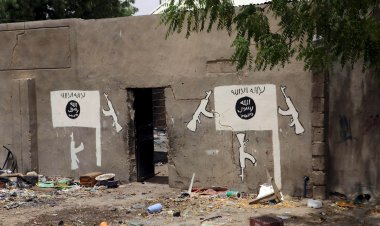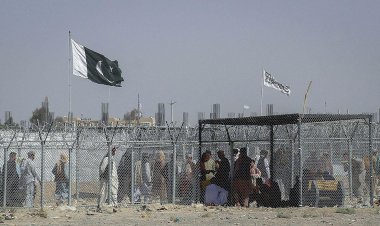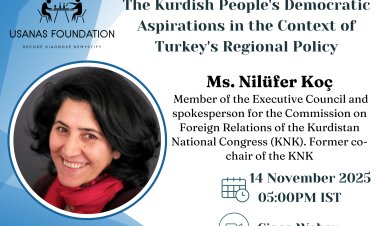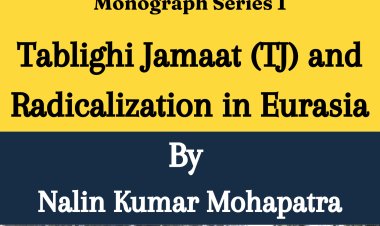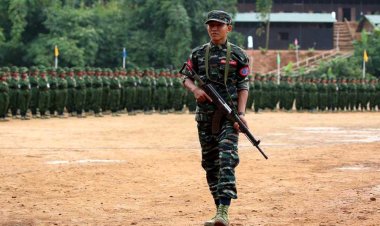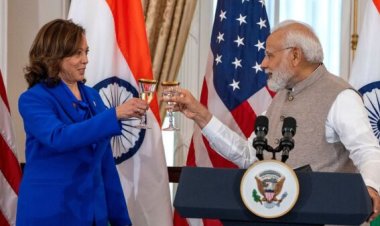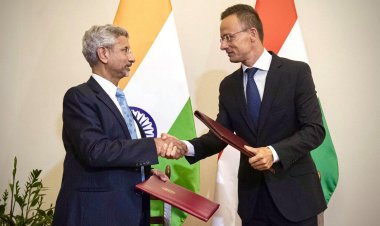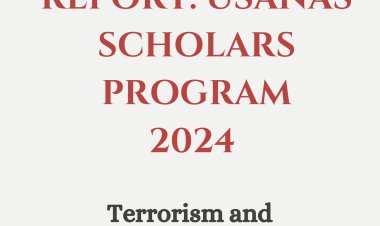India's G20 Presidency: Bridging Divergent Perspectives and Uniting Major Global Powers
India's presidency of the G20 has been a resounding triumph, with its focus on the concerns of the Global South garnering international attention and support. India's commitment to the interests and issues critical to the Global South has been evident during numerous crucial preparatory meetings leading up to the annual summit, underscoring its leadership in the international community.
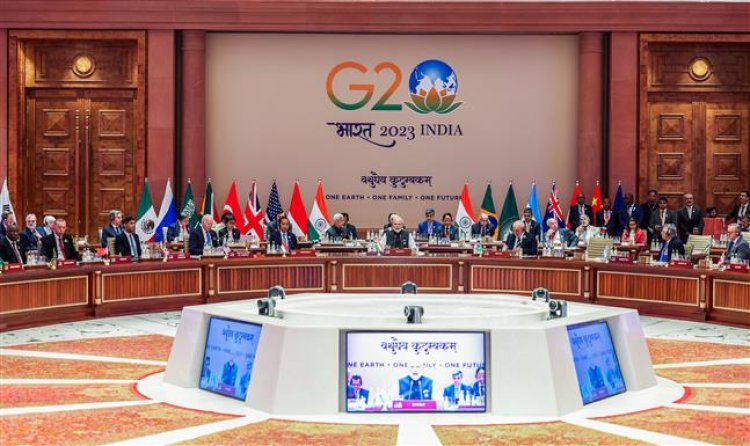
Analysis
By Vaasu Sharma
The ascension of India to the presidency of the G20 in December 2022 stands as a significant and pivotal development in the backdrop of pronounced global disruptions within contemporary international relations. The unanimous ratification of the New Delhi Leaders’ Summit Declaration during the annual G20 summit serves as a compelling affirmation of this momentous occurrence. It underscores India's adept diplomatic prowess, unwavering trustworthiness in the estimation of the world's major powers, and the multifaceted potential it exhibits by virtue of its burgeoning economy, its status as a preeminent hub for manufacturing, its emergence as a technological juggernaut, and its position as a nation upon which the international community can rely in times of unprecedented crises.
India's presidency of the G20 has been a resounding triumph, with its focus on the concerns of the Global South garnering international attention and support. India's commitment to the interests and issues critical to the Global South has been evident during numerous crucial preparatory meetings leading up to the annual summit, underscoring its leadership in the international community. As the international community seeks to diversify and enrich the dialogue within the G20, India's proposal to include the African Union in the forum sets a commendable example. This notable progression further presents the prospect of incorporating other regional organizations, namely the Association of Southeast Asian Nations and the Organization of American States, in forthcoming G20 summits. The significance of these considerations may be highlighted during the upcoming G20 summit in Brazil in 2024, as the international community seeks to broaden and enrich the dialogue within this vital international forum.
India has taken up the role of a mediator between the Global North and the Global South by building better relations with the former and facing challenges akin to the latter. India's stewardship of the G20 has been characterized by a strong emphasis on critical concerns such as sustainable development, food security, inclusive economic growth, and climate change mitigation. In a proactive move early in its tenure as the G20 presidency in January, India orchestrated a two-day virtual event known as the Voice of the Global South Summit. The primary aim of the Voice of the Global South Summit was to provide a forum for developing countries, which were not formally represented in the G20, to express their expectations regarding economic growth, development agendas, and aspirations for India's presidency. India's emphasis on inclusivity and global cooperation was reflected in its invitation to nations such as Bangladesh, Nigeria, Egypt, Mauritius, Oman, and others, for the annual G20 summit held in New Delhi. This inclusive initiative had leaders participating from an impressive 125 developing countries. Elizabeth Sidiropoulos, who serves as the Chief Executive of the South African Institute of International Affairs, headquartered in Johannesburg, notes that India has effectively positioned development as a focal point within the discourse and has conscientiously undertaken substantive endeavors to incorporate perspectives from across the African continent. This outreach extends beyond the historically dominant South African voice within the G20, representing a notable departure from convention.
Achieving consensus among the world's most affluent nations is an arduous task that requires great effort. The absence of Chinese leader Xi Jinping and Russian President Vladimir Putin added to the challenge, reducing expectations. However, India's adept and skillful diplomacy enabled it to bridge divergent perspectives and unite major global powers. Notably, the Leaders’ Declaration, which spans a substantial eighty-three paragraphs, addresses a wide array of issues ranging from plastic pollution to counterterrorism efforts. Indian Prime Minister Narendra Modi played a pivotal role in guiding the declaration to fruition, a document that welcomes the African Union as a new member of this esteemed group, among other significant aspects.
Notably, India's attempt to obtain membership in the African Union (AU) within the G20 demonstrates the country's competitive position in relation to China. China has significantly invested in the Global South, extending loans and aiding in infrastructure development across Africa and Latin America. Amid mounting accusations of debt entrapment against China and the changing geopolitical landscape after the Ukraine invasion, India recognized a strategic opportunity to challenge China's pre-eminence in the race for leadership in the Global South.
Another noteworthy development stemming from India's presidency, which was inaugurated on the cusp of the 10th anniversary of China's Belt and Road Initiative (BRI), pertains to the signing of a Memorandum of Understanding (MoU) aimed at instituting the India-Middle East-Europe Economic Corridor (IMEE-EC). For those who closely monitor and possess a profound understanding of international affairs, it becomes evident that China is a global power, less susceptible to the influence of military strength and more attuned to diplomatic initiatives, such as the IMEE-EC, which are designed to challenge its diplomatic sway in the region. Consequently, it is not an overstatement to suggest that the MoU establishing the IMEE-EC presents a direct challenge to China's burgeoning influence in the Middle East region.
The connectivity initiative at G20 garnered the active participation of India, the United States, the United Arab Emirates, Saudi Arabia, France, Germany, Italy, and the European Union. It is significant to note that Italy has conveyed its intention to discontinue its participation in the BRI. The Middle East corridor has two segments, each with a specific purpose. The East Corridor aims to connect Mundra and Fujairah ports, using a railroad network to transport goods to Haifa (Israel). Meanwhile, the West Corridor will go from Haifa to ports in France, Italy, and Greece. This project has the potential to connect nations like Vietnam, Thailand, Myanmar, and Bangladesh. Led by the United States, the UAE, Saudi Arabia, and India, this new trade route could surpass the Belt and Road Initiative in the future. It could become the primary backbone of global trade by utilizing global supply chains.
On the Sustainability and Climate front, this year’s G20 meetings and the annual summit have been the most significant, so much so that it came to be dubbed as a ‘green summit’. India has initiated various climate policies such as promoting the International Biofuels Alliance and establishing standards for green hydrogen. The country also advocates for 'Mission LiFe,' which focuses on a circular economy. In addition, India supports reforms within development banks to expedite green financing. The G20 was divided on the Russia-Ukraine conflict and faced significant challenges related to climate change, but ultimately reached a consensus on the need to address the crisis. China and Saudi Arabia objected to commitments to reduce fossil fuel consumption, increase renewable energy targets, and decrease greenhouse gas emissions. The New Delhi declaration calls for gradually phasing out fossil fuel subsidies, reducing coal power, and promoting clean energy generation while developing nations emphasize the importance of developed countries fulfilling their commitments.
On the digital front, India successfully promoted its Digital Public Infrastructure plan as an exportable tech solution for financial inclusion. While it’s unclear whether other countries are capable of replicating India’s digital plan, it has found a niche that goes above and beyond simple capital financing.
In the domain of digital initiatives, India has efficaciously progressed its Digital Public Infrastructure plan as a potentially exportable technological resolution for augmenting financial inclusion. Although the viability of other nations imitating India's digital strategy remains ambiguous, India has discerned a distinct niche that transcends beyond mere financial investment considerations.
A strategic undercurrent, beneath the surface of this collaborative tableau of G20, ensures that China's aspirations to emerge as the foremost advocate for the Global South will not proceed unchallenged. India is actively positioning itself as a contender, operating in accordance with its own distinctive terms and in collaboration with a diverse array of partners. This engagement is characterized by a nuanced and attentive approach that seeks to align with the aspirations and priorities of its partners.
Notably, the Indian leadership of G20, involved extensive deliberations across over sixty cities within India. These deliberations were notably characterized by a fervent dedication to amplifying the voices of marginalized constituencies and nations from the Global South. Despite the absence of Presidents Putin and Xi, this particular G20 Summit emphasized not the perpetuation of conventional diplomatic paradigms, but rather the exploration of novel avenues within the realm of diplomacy. Ultimately, India's diplomatic efforts have effectively highlighted its proficiency in navigating existing geopolitical tensions, all while adeptly championing the interests and aspirations of nations that have historically struggled with the peripheries of global discourse.
Diplomatically, India has adroitly secured a position of prominence in the upper echelons of global discourse. Moreover, India has effectively assumed a proactive role in shaping deliberations pertaining to the concerns of the Global South and issues relevant to the Global North. India's approach is characterized by meticulous tailoring of strategies to address these issues, which are pursued in concert with Western powers, rather than in opposition. The embodiment of this collaborative ethos is poignantly encapsulated in an iconic image featuring leaders from India, South Africa, Brazil, the United States, and the esteemed World Bank.
Overall, India's tenure as the G20 president has underscored its potential to emerge as a major player in international affairs. During its presidency, India has demonstrated a heightened degree of proactivity and effectiveness. Historically, Indian policymakers exercised caution in terms of aligning too closely with Western nations, in order to avoid potential misinterpretations by China as an aggressive manoeuvre. However, Beijing's assertiveness has, in effect, resolved this dilemma for New Delhi. India is now unequivocal in its commitment to pursuing its interests in collaboration with the United States, irrespective of how Beijing may perceive it. The highlights of this Indian approach may be visible in the Quad partnership, which may see a visit by President Biden to India in January 2024 as well as the intensified engagement with the U.S. in West Asia through the recently announced infrastructure corridor.
Disclaimer: This paper is the author's individual scholastic contribution and does not necessarily reflect the organization's viewpoint.
Vaasu Sharma is a Foreign Policy Analyst based in India. He is pursuing his Ph.D. at the University of Haifa in the International Relations Department. He previously worked with WION Tv Channel as a Research Consultant in New Delhi. He has done his Master in International Relations with a specialization in Diplomacy Studies from the University of Haifa in Israel. He was also associated with BRICS International Youth Forum in India from 2016 to 2017.

